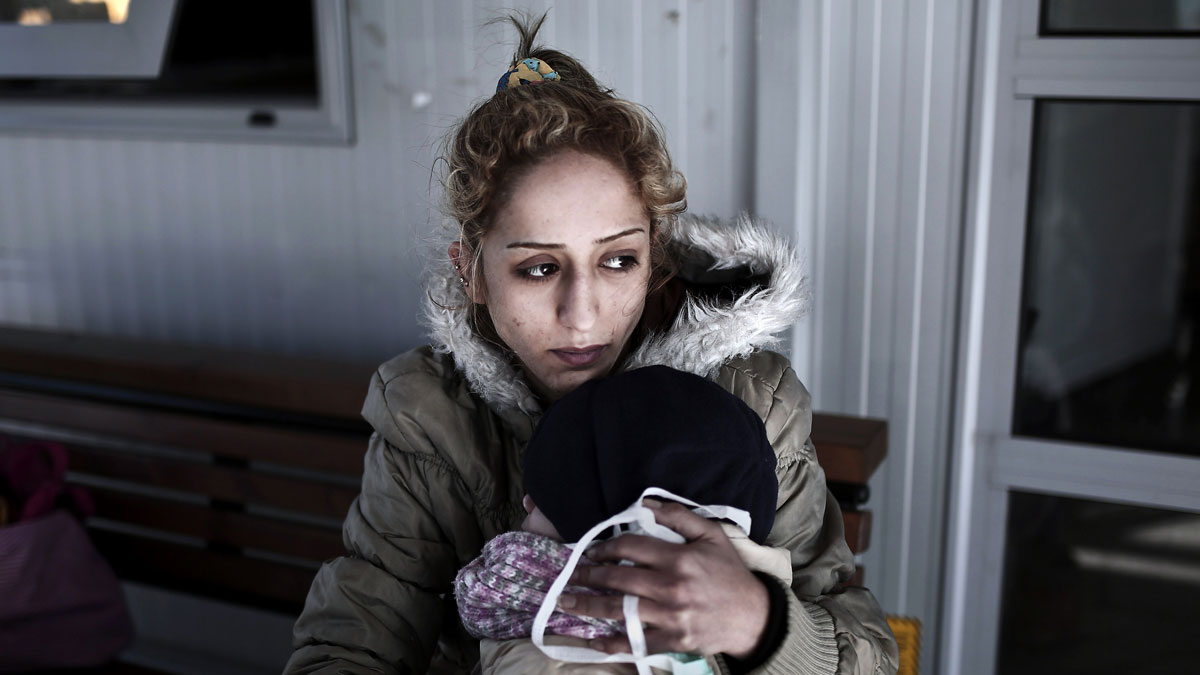EU migrant crisis: Britain won't take in Mediterranean refugees
Europe agrees to voluntary intake of asylum seekers, but UK, Hungary and Poland opt out of the scheme

A free daily email with the biggest news stories of the day – and the best features from TheWeek.com
You are now subscribed
Your newsletter sign-up was successful
The British government has come under fire for opting out of a voluntary scheme to resettle thousands of refugees arriving in Europe.
During heated talks at the EU summit in Brussels, European leaders hoping to come up with a solution to Mediterranean migrant crisis refused to accept mandatory quotas, but agreed on a voluntary intake scheme.
In order to relieve the pressure from southern European countries, members agreed to resettle 40,000 refugees now in Italy and Greece and another 20,000 people currently outside the EU.
The Week
Escape your echo chamber. Get the facts behind the news, plus analysis from multiple perspectives.

Sign up for The Week's Free Newsletters
From our morning news briefing to a weekly Good News Newsletter, get the best of The Week delivered directly to your inbox.
From our morning news briefing to a weekly Good News Newsletter, get the best of The Week delivered directly to your inbox.
The resettlement will only apply to refugees and asylum seekers and "migrants with no legal right to enter the EU will be returned", said the president of the European Council, Donald Tusk.
But Britain and a handful of other European nations, including Hungary and Poland, have chosen not to take part in the resettlement scheme.
David Cameron now faces growing criticism for closing Britain's doors to vulnerable refugees, many of whom are fleeing war and conflict in North Africa and the Middle East.
UN special representative Peter Sutherland urged all member states to do their part in dealing with the humanitarian crisis.
A free daily email with the biggest news stories of the day – and the best features from TheWeek.com
"This is a question basically of European solidarity," he told BBC Radio 4's Today show. "Why should Greece and particularly Italy take this unfair burden of responsibility for people who are refugees escaping from persecution?"
Last week, Home Secretary Theresa May said migrants crossing the Mediterranean should be forcibly sent back as a deterrent and to show there was "no merit" in coming to Europe, reports the Daily Mail.
David Cameron insisted that the UK “will play its role" in dealing with the crisis. "Already, it is the Royal Navy picking up people in the Mediterranean [and] British aid is doing a huge amount to stabilise African countries" he said.
-
 5 cinematic cartoons about Bezos betting big on 'Melania'
5 cinematic cartoons about Bezos betting big on 'Melania'Cartoons Artists take on a girlboss, a fetching newspaper, and more
-
 The fall of the generals: China’s military purge
The fall of the generals: China’s military purgeIn the Spotlight Xi Jinping’s extraordinary removal of senior general proves that no-one is safe from anti-corruption drive that has investigated millions
-
 Why the Gorton and Denton by-election is a ‘Frankenstein’s monster’
Why the Gorton and Denton by-election is a ‘Frankenstein’s monster’Talking Point Reform and the Greens have the Labour seat in their sights, but the constituency’s complex demographics make messaging tricky
-
 Epstein files topple law CEO, roil UK government
Epstein files topple law CEO, roil UK governmentSpeed Read Peter Mandelson, Britain’s former ambassador to the US, is caught up in the scandal
-
 Iran and US prepare to meet after skirmishes
Iran and US prepare to meet after skirmishesSpeed Read The incident comes amid heightened tensions in the Middle East
-
 Israel retrieves final hostage’s body from Gaza
Israel retrieves final hostage’s body from GazaSpeed Read The 24-year-old police officer was killed during the initial Hamas attack
-
 China’s Xi targets top general in growing purge
China’s Xi targets top general in growing purgeSpeed Read Zhang Youxia is being investigated over ‘grave violations’ of the law
-
 Panama and Canada are negotiating over a crucial copper mine
Panama and Canada are negotiating over a crucial copper mineIn the Spotlight Panama is set to make a final decision on the mine this summer
-
 Why Greenland’s natural resources are nearly impossible to mine
Why Greenland’s natural resources are nearly impossible to mineThe Explainer The country’s natural landscape makes the task extremely difficult
-
 Iran cuts internet as protests escalate
Iran cuts internet as protests escalateSpeed Reada Government buildings across the country have been set on fire
-
 US nabs ‘shadow’ tanker claimed by Russia
US nabs ‘shadow’ tanker claimed by RussiaSpeed Read The ship was one of two vessels seized by the US military